2010.01.21[Updates]
Relaying comments: Reflections on 22nd TIFF (Part1)
" I think that the Green Carpet has message of the commitment towards the consciousness of our responsibility for working to make a more ecological and clean world. I think that it's a good idea or a good intention for the film festival to send this idea to hundreds and thousands of people. I consider this as a valuable effort to keep going for the consciousness of the new generation to work for clean environment ".
Alejandro González Iñárritu [ President of the International Competition Jury ]
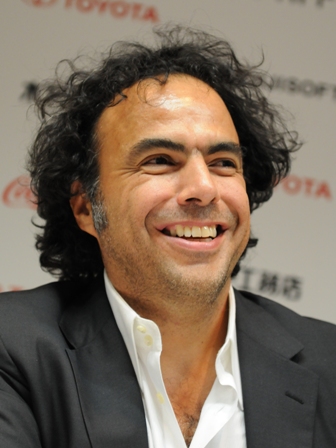
2009.12.28[Updates]
22nd Tokyo International Film Festival – General comments by the juries

We received the general comments from the members who served as juries of respective sections, namely, “TOYOTA Earth Grand Prix”, “Winds of Asia – Middle East” and “Japanese Eyes”.
Enjoy our must-read articles.
・“TOYOTA Earth Grand Prix” General Comment
・“Winds of Asia – Middle East” General Comment:“Winds of Asia – Middle East” section – President of Jury, Mr. Koshi Ueno
・“Japanese Eyes” General “Japanese Eyes” section – President of Jury, Ms. Yuko Sekiguchi
※※ Click to view each general comments.
22nd Tokyo International Film Festival - Awards results
Marking its 2nd year, the impressive drama and documentary film titles from the countries and regions of the world were gathered once again for the “natural TIFF” section, which was started as one of the film screening sections in the Tokyo International Film Festival, under the banner of global environmental protection and human coexistence with nature. As the result made after the careful considerations, including the film entries from different sections produced along this theme; Wolf (directed by Nicolas Vanier / France) won the "TOYOTA Earth Grad Prix” with the consensus of all three judges. The story is about a boy who lives in the harsh mountains of Siberia, who was promised to become a head of the family in the future. While spending the days fighting their natural predators, the wolves; he encounters a wounded she-wolf. Deeply touched when seeing the compassion between the she-wolf and the cub, that was no different from men; a boy decides to protect the wolf by breaking the law set by the family. Directing, acting, and cinematography all zeroed in on the viewers with unison. The film was full of power and precisely depicted the "symbiosis with nature," with an emotional touch. The workmanship of the film was appropriate for the purpose of this award. When the director, Mr. Vanier, received the news of the award, he was greatly pleased and sent us the video message for the award ceremony but couldn’t make a visit. As a sequel to the incident, we later learned that he was a person of principle who wouldn’t aboard the airplane which polluted the earth by scattering gasoline.
We may also add that another allegorical drama, The Mermaid and the Diver (directed by Ms. Mercedes Moncada Rodoríguez / Mexico = Spain) which was based on the legend of the people who live by the sea in Nicaragua, Central America, was also an unforgettable and attractive film as well.
Once again, group of films rich in variety were gathered from the vast regions including the Middle East to Northeastern Asia for the "Winds of Asia – Middle East". The careers of the creators varied from rookies to the veterans, and also the trends of film entries varied from the experimental to the entertainment titles. Amongst those 20 films, Director Ounie Lecomte’s A Brand New Life (Korea = France) was chosen for the “Best Asian – Middle Eastern Film Award”. The film seems to be the director’s autobiographical story, but her skills with controlled narrative which highlighted the girl’s loneliness who was abandoned in an orphanage was so sophisticated that it was hard to believe that she was still a rookie. Her deliberate directing is clearly demonstrated in the opening of the film where a girl clinging to her father’s back who pedals a bicycle, is brought to the orphanage and was fostered out without her knowing it; the face of her father is never revealed in these sequences which include them purchasing her clothes or even in the scene where they eat together.
We can also include I Saw the Sun by the Director, Mr. Mahsun Kirmizigül (Turkey) as the film which earned the special mention. The film which depicted the hardship of the Kurdish family in Turkey, who abandoned their home land because of the civil war and moved to Istanbul, and some even reached Norway; had the use of editing and music which were somewhat old-fashioned, but the excellent film with great motivation was beyond mere story of refugees which incorporated the gender issues in a patriarchal society.
Other films which garnered the attention at the jury meeting were Director, Mr. Maziar Miri’s The Book of Law (Iran); Director, Mr. Shahram Alidi’s Whisper with the Wind (Iran) and furthermore, a cinematic theoretical film, Shirin (Iran), which was directed by a great veteran, Mr. Abbas Kiarostami.
Also, apart from these films, Talentime (Malaysia), a posthumous of Director, Ms. Yasmin Ahmad, who have passed away last year, was a film full of charm which continued The Convert (Malaysia), her last year’s film entry, in which we witnessed her efforts to step out towards the wider world, when compared from series of films starting with her first, which was centered on the story about the family life. Therefore her death was extremely sorrowful, but with that note in our mind and considering that all of her works have screened at TIFF; we presented the “Winds of Asia – Middle East, Special Award for Lifetime Achievement” to Director, Yasmin Ahmad.
The “Japanese Eyes” which met its 6th session this year, introduced the lineup of films, which were very much like scooping the diversity in a nation called Japan with a large net. The mesh of the net was extremely large and there were some film titles which tended to slip through the net. But the characteristics of the works collected here varied, starting with the peculiar film, which in a sense had an air of refusal to be seen, following with the film which made a bold visual challenge, or film which harmonized the cultural genres such as painting, calligraphy and music, and also the film which showed the naked uncertainty of a writer; which can all be unmistakably called the works about "modern day Japan."
These selections were focused to show the diversity to the "viewers abroad." The decision for the choice was made, not for the reasons that the films looked well when seen together with other works or because of their cultures or characteristics that stood up when compared with the others, but the decisive factor was the sole lambent individuality of the film and its potential for the future. The Best Picture Award was given to a single film. We had no intentions to increase the awardees. We presented the award to the LIVE TAPE directed by Mr. Tetsuaki Matsue, which captured the street live performance of a singer-song-writer with the self-convinced lengthy continuous shot.
List of respective film reviews:
OUR BRIEF ETERNITY
Director: Mr. Takuya Fukushima
【Reviews】
The mere presence of Kouta Kusano connected the film and reality (the audience). This film shows a certain community. The conversations are completed within this community, thus if the audiences do not make efforts to show interest and understanding, they will be declined from viewing the film. However, this sense that the film holds is distinctly like the way the modern day Japan is like.
To Walk Beside You
Director: Mr. Yuya Ishii
【Reviews】
Film is a well written and is created with the swinging tempo and music. The depiction of the film up to the characters coming out to the big city is wonderful. But the ambiguity of the comparison between the sex with the high school classmate, in contrast with the hero’s sex with the woman who lives in reality, may have produced the unintentional effect for the director. Common opinions among the juries were their limitless interest for the future of this author.
Jungle-House Three-Farts / Sanpei Hayashiya
Director: Mr. Toshiyuki Mizutani
【Reviews】
For better or worse, this is a documentary showing the charms of the late Master comedian, Sanpei Hayashiya rather than a film. While you can see how and why he became the Japan's first TV comedian, it also lacks an objective and critical perspective and seems like Ebina (Sanpei’s) family movie. But the film is important as a record.
The Night of Whirlwind Restaurant
Director: Mr. Tetsuo Shinohara
【Reviews】
Snow piles up on a white plate. Before long the snow begins to quietly accumulate and becomes one restaurant in the street corner. The spirit of the intention to create the world of fantasy for adults shows throughout the films in camera angles and calligraphy of the titles. The visual where the window transforms into the screen in another dimension is beautiful. There is stability in this film as sense of superb fantasy that gives us the moment of repose, but is rather lacking in the experimental efforts to portray the modern day Japan. But we may be wrong to ask for it to begin with.
Palm of the Hand Stories
Directors: Mr. Takushi Tsubokawa, Mr. Nobuyuki Miyake, Mr. Tsukasa Kishimoto and Mr. Yuya Takahashi
【Reviews】
We acknowledged the enthusiasm to make the adaptations of Yasunari Kawabata’s story, but setting the period of this film similar to the original piece worked negatively. As the result, the audiences realized how difficult it was to create a sense of time with in the limited budget and how hard it was to create the air of the period for the modern young actresses and actors. In particular, because of Director, Mr. Hiroshi Shimizu’s Mr. Thank You (1936, production year), we couldn’t help comparing it to Thank you, an episode in this film title. The opinions of all the juries were that it could have been better if the films were created as contemporary pieces.
TOCHKA
Director: Mr. Hiroyuki Matsumura
【Reviews】
Film received high evaluations because it was experimental and cinematic. The dramatics performed by the two players, Ms. Yoko Fujita and Mr. Shun Sugata, and the directions which used window of Tochika (a military pillbox enclosure) as a screen was wonderful. Above all, the evaluations focused on the air of heaviness in the long narrative of Mr. Sugata before he sets the fire. But the film didn’t receive the Grand Prix because there was a slight uneasiness with the sound recording and the processing of the film which was unintentional for the director.
If Blessed
Director: Mr. Kite Okachimachi
【Reviews】
The crime brought the man and the woman together. Their changes of emotions were performed in the scenes where there were no significant movement or episodes; Ms. Machiko Ono and the rookie, Mr. Masashi Kubota were wonderful receiving a great reputation. The sorrowfulness of sharing love making beyond the distance of the room in apartment and the prison cell would remain in the film history. However, there was too much music. Also the conceptual part of the film didn’t make us feel its catharsis but rather gave us the feeling of the oldness.
LIVE TAPE
Director: Mr. Tetsuaki Matsue
【Reviews】
We gave a high evaluation to the ability and delicate directorial skills of Director Matsue who created a film which at first glance seemed to be like the haphazard rolling of the video tape, but this actually was self-convincing and intentional effort. We gave this film a unanimous vote as a winner for Best Picture Award. The talent of the filmmaker dwelled throughout the film, namely the skill of setting the distance between the camera and the subject, the method of affirming the human existence, and the way the theme was revealed. The vitality of Kenta Maeno’s singing voice resonated with the film and gave a spark to it.
2009.12.24[Updates]
23rd Tokyo International Film Festival : October 23 (Sat) - October 31 (Sun), 2010

Date:October 23 (Sat) - October 31 (Sun), 2010
Venues:Roppongi Hills (Minato City), theaters, halls and other facilities in Tokyo metropolitan area.
23rd Tokyo International Film Festival Outline
23rd Tokyo International Film Festival Official Site
2009.10.30[Event Reports]
Tokyo Sakura Grand Prix winning film “Eastern Plays” special screening in Oct. 25.
Kalev said “Arigato Gozaimasu, Konnichiwa” in Japanese, and continued, “I am extremely delighted that I won the Grand Prix. It was the most memorable moment in my life when I received this award from those great jury members in this magnificent city Tokyo. Though Japan is far away from Bulgaria, I appreciate that you would see the reality of our society through this film.

Stefan Piryov said, “I am also very happy and really excited about receiving the Grand Prix. Thank you very much.”

Kalev, who also won the Award for Best Director, was asked what in your work is the most praised by the jury.
“Alejandro González Iñárritu, the president of jury, told me that the film showed the truth. That is exactly what we have aimed for. I wanted to realistically depict the life of Christo Christov and his thoughts. So, I really appreciate what Mr. Iñárritu told me.”
Through the film, we can see the problems in Bulgaria where is not very familiar for Japanese.
“I hope more people get interested in Bulgaria. Bulgaria does not have just Bulgarian Yogurt, has a wide variety of cultures. Kotooshu, a Bulgarian Ozeki, works as the ambassador of friendship on behalf of our country. Though he wanted to come here today, unfortunately he couldn’t make it due to the training.”
“This film is my message. I hope you enjoy it.”
Stefan Piryov said,
“I want to express our thanks again. Thank you very much.”
The left the theater, vowing again and again.

“Eastern Plays” won the Tokyo Sakura Grand, the Award for Best Director and the Award for Best Actor.
Please see also the Lists of Awardees.
2009.10.29[Event Reports]
“I must buy a new bag for the trophies.” Tokyo Sakura Grand Prix Press Conference by the Director of Eastern Plays
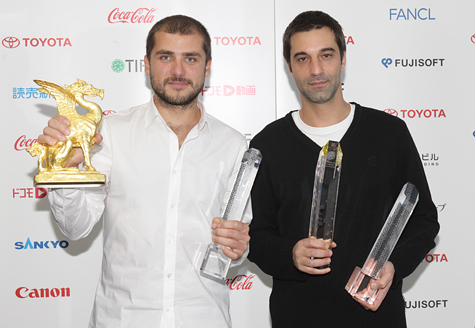
The winner of the 22nd Tokyo International Film Festival’s Sakura Grand Prix went to Director Kamen Kalev’s Bulgarian film, Eastern Plays. The film won three trophies including the Best Director Award and Best Actor Award which was given to Christo Christov. It achieved the spectacular feat of winning the three awards since the Yuki ni negau koto (aka. What the Snow Brings).directed by Kichitaro Negishi., the award-winner of the 18th TIFF. .
Director Kamen Kalev who arrived at the venue which was filled with the joy of receiving an award said, ”It’s heavy.. I was just saying that. I needed to buy a new bag to bring it back home,” he was showing his smile with a trophy in his hand. Producer Stefan Piryov followed him into the venue and they both appeared at the press conference.
The film focuses on the relationship of an artist painter who is dependent on the alcohol and his younger brother. The drama closes in on the nature of humanity by giving an insight on the place to set the soul of an individual. There were questions concerning the conflict and discrimination between Bulgaria and Turkey, which are the issues this film captures to depict the real-life Bulgarian society. Director Karmen Kalev says, “Regretfully, it is the truth that there are discriminations and prejudices in Bulgaria. But the feeling that I have is, why keep continuing to hold the prejudice. I believe we should open ourselves and step forward. Maybe there’s a political intention to encourage the prejudices. But I would like to believe from my heart and want the people not to be mislead by the strangers and stop the prejudice.” .
It is Christo Christov. who won the Best Actor Award and gave a significant influence on the Director Kalev and gave a motive for producing the film, Eastern Plays. The director mentioned about his award-receiving and the unfortunate sudden death, just prior to the completion of the film. “I was very shocked that he won the award,” he unburdened his sentiments. The reason was, “I thought that the awards were given as an encouragement for the efforts that a person is working on. But I am getting a strong impression that, maybe the award was to share the memory of the departed or the award was to make a retrospect his life,” he replied.
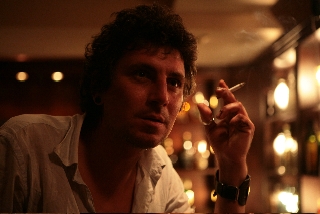
“When the shooting was completed, I began editing with the small notebook-size computer, but the budget ran out. I found a co-producer in Sweden later on and completed the film, but I felt most lonely during this time,“ said Director Kamen Kalev who reflected upon his efforts during the production. “When I was contemplating on how to show my film to the worldwide audience; I visualized entering my film into the three film festivals, Cannes International Film Festival, Sarajevo Film Festival and Tokyo International Film Festival. I truly believe that the reason why I received the Tokyo Sakura Grand Prix is because I depicted the truth in my film. I faithfully depicted what Christov experienced and his attitude towards life. But I think that the issues on the family, discrimination and drug dependence…I believe that these are the common things that we are sharing,” said Director Kamen Kalev who self-analyzed the reason for the awards. ”I will start shooting the next film about a young man’s self-discovery using new methods of film making starting on the May of 2010,” says Director Kamen Kalev.

This is another birth of the new talent who made his giant leap to the world from the Tokyo International Film Festival.
2009.10.28[Event Reports]
“Passionate suggestions for future of TIFF.” by Alejandro González Iňárritu, the President of Jury.
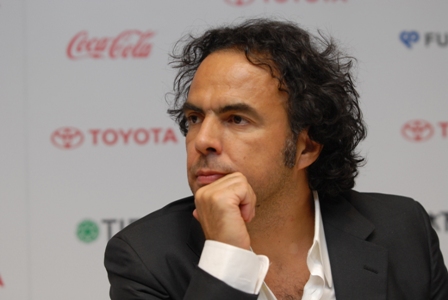
The proposal that I made was not to behave as a censor and “make a choice by examining” but to watch the film in the same perspective as the audience. A film that strikes a sympathetic chord in the guts or a film that you can release your feelings to; a film the truly remains in my mind and a thought-provoking film. Easter Plays was exactly such a film for me “
When the press asked for the reason, ”Why the choice of the award was centralized on one film? “ or “Was there a debate held on whether to divide the award with other films?” He answered that, “By no means the other films were pale in comparison with this one, but Eastern Plays was pretty much the film which was eminent. Amongst the five awards that we were presenting, four of the awards were determined by an unanimous decision.”
“This is an allegorical story about the ship which sailed the Atlantic Ocean, setting out for the land on the opposite shore, even though they were making a steady progress until part of the way, but ultimately they never reach the land. Eastern Plays was the only one that made it to the opposite shore properly. The theme that the director wanted to show in the film functioned properly. And its expression leads to the beauty. I believe that to show the reality of the film, you can’t just simply capture the reality as it is, but must show the truth of the matter as well.
“Eastern Plays depict the complex reality which surrounds the youth while indicating the final glow of life and that the hope still remains. I believe that the leading actor, Christo Christov, will be glad somewhere in heaven,” he explained about the reason for his choice of Tokyo Sakura Grand Prix.

President of the International Competition Jury, Alejandro González Iňárritu said, “This is what I thought while reflecting on the 15 films that I saw within the ten days,” and began to make suggestions regarding to the future of the Tokyo International Film Festival and the situation of the Film Industry and the Film Festivals.
“I must admit that the situation that surrounds the film scenes is becoming more and more desperate. The reason is obviously due to the economical problems. The only types of film making that are still continuing are film making with extremeness or gigantic project which is funded with large sum of money or minor film is made with desperate budget. In addition to the economic crisis, people’s morals and art itself is facing danger because of the franchised blockbuster films, the so called hero films or violence films. The only resistance movements against the declining film scenes are the film festivals. Won’t you agree that the period in which the festival is held is the only time that is
worth while.? I feel pity for the audience because the only time you can appreciate the films, that are truly worthy, are when it is exhibited for the temporary duration of time
Films are not extension of television. There are too many films that are created by the makers who worry about the ratings and box office revenues. I believe that film should be a tool to communicate the human emotions. The film festival is a place to seek for the solution of such problems. The problem solving shouldn’t be merely done in the span of 7 or 10 days. They should screen the award winning film for one month or two months. The recognition of the film should spread with word-of-mouth communication. I would like TIFF to be a role model figure to lead such an effort. That is the role of the film festival.”
Because Alejandro González Iňárritu, President of the International Competition Jury, has been creating the films that closes in to the true nature of human being, namely 21 Grams and Babel, his message is passionate, tough and honest. With afterglow that overwhelmed the press and the photographers, the film festival came to an end.
2009.10.25[Special Contents]
News: Watch the scenes from Closing Ceremony with On Demand Delivery


The 22nd Tokyo International Film Festival, Commendation Ceremony which has been broadcasted earlier will be shown with On Demand Delivery.
TIFF official web site will make this video delivery of the most glamorous event in the Japanese film industry possible through On Demand service.
授賞式全体
Tokyo Sakura Grand Prix
Special Jury Prize
Award for Best Director
Award for Best Actress
Award for Best Actor
Best Asian - Middle East Film Award
Japanese Eyes, Best Picture Award
The visuals may not be delivered smoothly depending on computer capacity, time zone and line connections.
*Please note that the video delivery will not support any versions older than Mac OS9 for Mac users.
2009.10.25[Updates]
Lists of Awardees: Tokyo Sakura Grand Prix goes to Eastern Plays!!

Competition section:
Director Kamen Kalev

Director Sebastián Cordero

Director Kamen Kalev
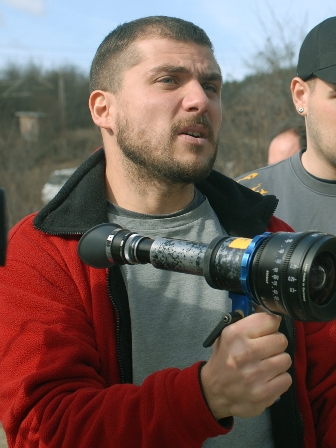
Julie Gayet
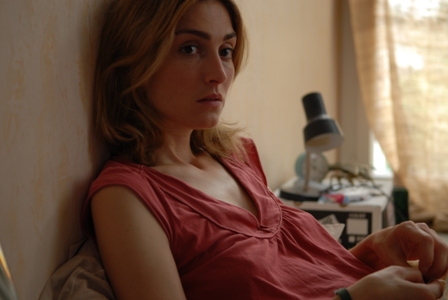
Christo Christov

Director Nicolas Vanier

Winds of Asia – Middle East section:
Director Ounie Lecomte
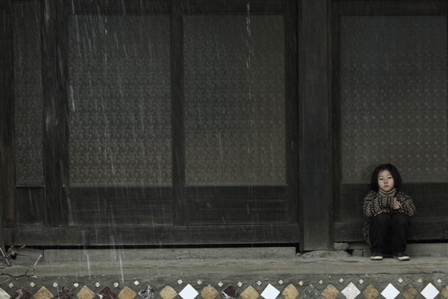
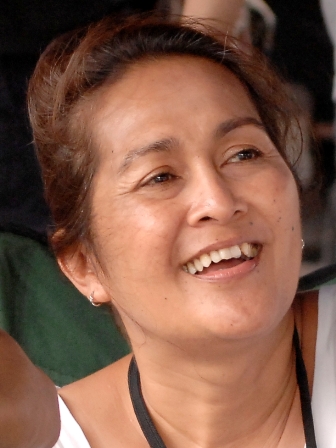
Director Mahsun Kirmizigül
Japanese Eyes section
DirectorTetsuaki Matsue
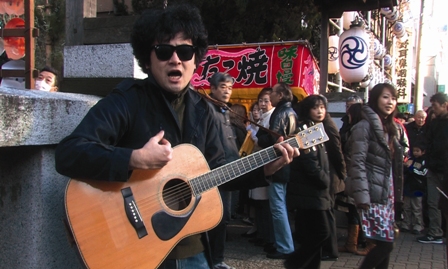
2009.10.25[Updates]
22nd Tokyo International Film Festival – Closing Ceremony
Firstly, the announcement for the Best Picture Award of the Japanese Eyes section, was made by Ms. Yuko Sekiguchi of Japanese Eyes Jury.
Japanese Eyes section
Best Picture Award went to LIVE TAPE,. Director Tetsuaki Matsue

The announcement for Winds of Asia – Middle Eastern Film Award was made by Mr. Koshi Ueno of Winds of Asia – Middle East Jury.
Winds of Asia – Middle East section
Best Asian-Middle Eastern Film Award went to A Brand New Life, Director Ounie Lecomte
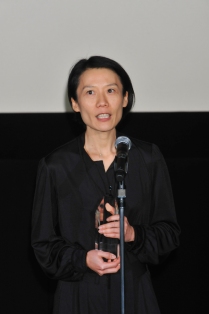
The announcement for TOYOTA Earth Grand Prix was made by Chairman Tom Yoda. The trophy was presented by the Toyota Motor Corporation, Executive Managing Director Norihiko Arai.
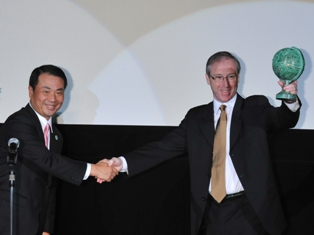
TOYOTA Earth Grand Prix
TOYOTA Earth Grand Prix, screened by natural TIFF section went to WOLF, Director Nicolas Vanier.
Finally the announcements for the Competition section
First of all, The announcement for The Audience Award of the Competition section which was chosen and announced at the Commendation Ceremony by the audience on Oct. 24th (Sat).
The Audience Award went to The Trotsky, Director Jacob Tierney
Award for Best Actor, went to Eastern Plays, Christo Christov
Award for Best Actress went to Eight Times Up, Julie Gayet
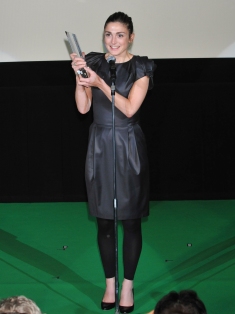
Award for Best Director went to Eastern Plays, Director Kamen Kalev
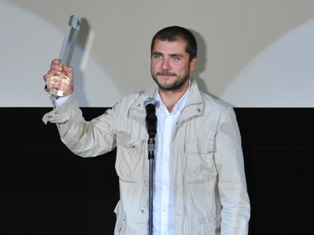
Special Jury Prize went to Rabia, Director Sebastián Cordero

The respective Awards were presented and finally the presentation of the Tokyo Sakura Grand Prix.
The Tokyo Sakura Grand Prix went to Eastern Plays, Director Kamen Kalev


Following the speech on the over-all judgment by the President of Jury, Alejandro González Iñárritu, who thanked the Chairman Tom Yoda for the invitation, expressed his joy for being able to return to Tokyo International Film Festival where he received the Award nine years ago. He also mentioned that the Film Festival is a place that allows the people to watch various films from the world and said that he hoped that many films which entered the Tokyo International Film Festival would be able to find a distribution company here in Japan.
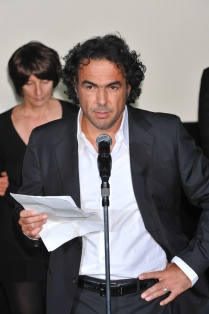
Finally, Chairman Tom Yoda expressed his appreciation for being able to close the Tokyo International Film Festival with great éclat. Since last year, Chairman has commenced the Green Carpet with a wish to send the message of protecting the beautiful earth, its environment and ecology through the film festival. TIFF would like to be considered as runner-up to Cannes International Film Festival, Venice International Film Festival and Berlin International Film Festival in terms of news value, but also would like to present the high quality film titles. He finished his speech with the hope of prospects of the 23rd TIFF which will be held next year...
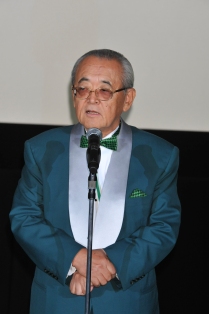
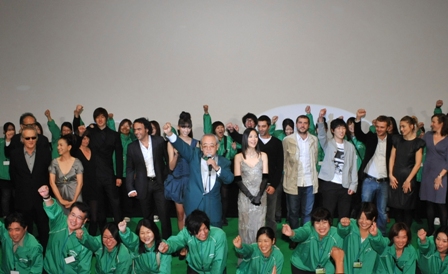
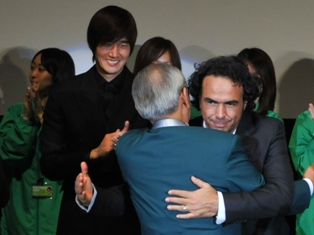
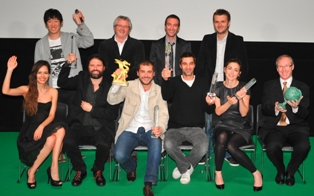
2009.10.25[Updates]
News on Closing Ceremony Live Delivery


※If you do not see the play button at the starting time of the delivery, please push the “reset” on the browser page.
The Closing Ceremony Live will deliver the Commendation Ceremony held on the last day of the festival.
The Closing Ceremony in which the announcements of the Awards including the Competition sections, Tokyo SAKURA Grand Prix, will be delivered by Internet. Please enjoy the excitement of the Closing Day with the live coverage delivery.
Catch the TIFF tiff-jp.net wave!
Closing Ceremony Live Delivery
Oct. 25th (SUN) 14:00 - (May be extended up to 17:00 max.)
Viewers will need the latest Windows Media Player to watch the live internet delivery.
Click here to download the software.
The visuals may not be delivered smoothly depending on computer capacity, time zone and line connections.
*Please note that the video delivery will not support any versions older than Mac OS9 for Mac users.
→ Read more













